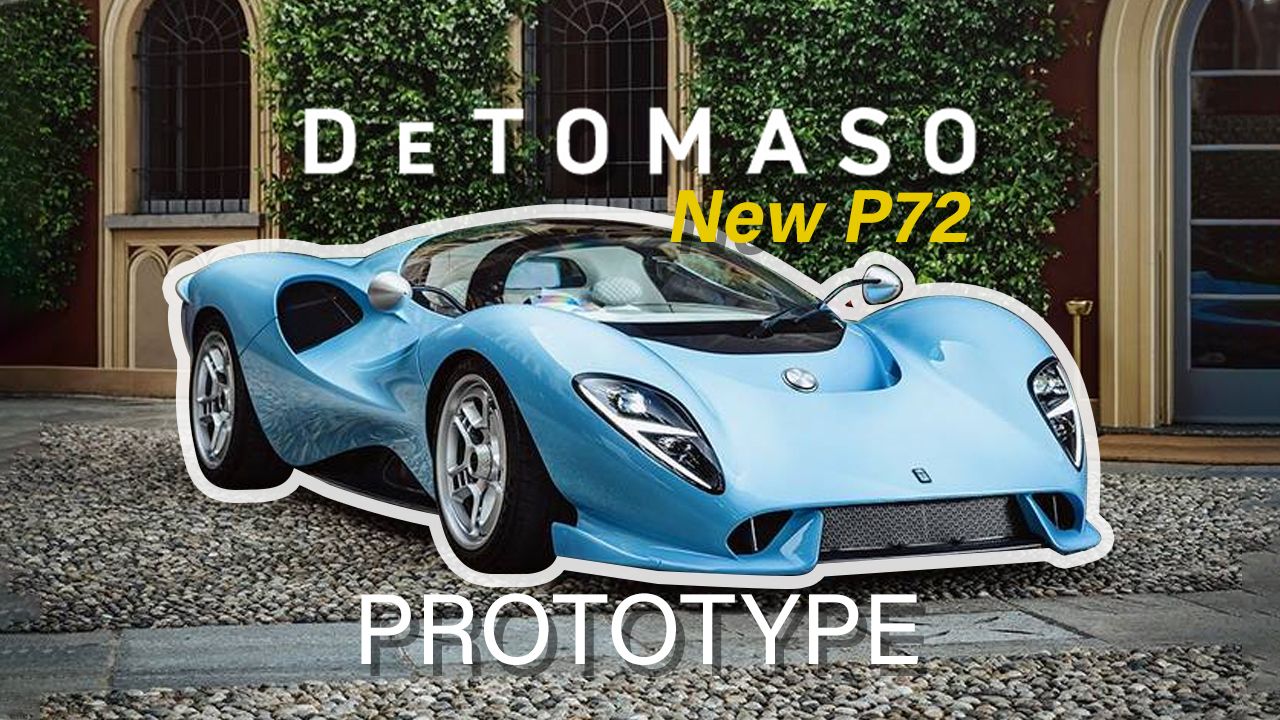The words De Tomaso is almost immediately associated with "Pantera." While this is no doubt the best-known model, De Tomaso had a very interesting history. It was founded in 1959 by Argentine-born Alejandro de Tomaso and, in the beginning, it built various prototypes and racing cars. From there it went to developing sports cars and luxury vehicles, like the Mangusta and Pantera. It was owned by Maserati for a while, was later sold to Ford, and then eventually back to De Tomaso. In 2009, under new ownership, it changed its name to De Tomaso Automobili SpA, and then in 2014, rights to the De Tomaso brand were acquired by Norman Choi. Under this ownership, De Tomaso is preparing its comeback. In 2019, at the 2019 Goodwood Festival of Speed, it unveiled the P72 just in time to celebrate the company's 60th anniversary. Now we're looking at an evolution of that prototype.
The model unveiled was just a prototype, and it seems that three years in, the P72 is still in the development stage. A new version of the P72 wowed both the public and expert judges during this year’s Concorso D'eleganza di Villa D'este in Lake Como, Italy. Unfortunately, despite a clear evolution in the design, we are still not looking at a final production version. De Tomaso however promised it should happen sometime next year.
The P72 was inspired by the P70 - a project race car built in collaboration between Alejandro DeTomaso, Carroll Shelby, and Peter Brock. Unlike the P70, which never saw the light of day, the P72 will be built in a limited number of 72 units, with a starting price of $1,000,000. The P72 was supposed to be built in the U.S., but the pandemic forced De Tomaso to take a different approach, and it is now finalizing a plant and a testing facility next to Nurburgring, Germany.
While there are no official details about specifications, we know that the P72 - just like the Vallelunga, P70, and Mangusta - will be offered with a state-of-the-art carbon chassis, consisting of the monocoque, as well as subframes and crash structures. As for its exterior design, De Tomaso said it "focuses on perpetual beauty and ageless proportions of the 60’s Le Mans prototype vehicles for today's modern era." The cabin, while very luxurious, will go for a minimalist design approach with minimal tech intervention and complexity. The classic switchgear and circular analogue dials are inspired by the cars of the 60s and 70s.

